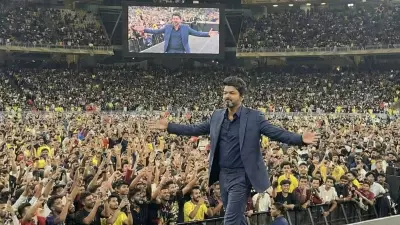
Bollywood superstar Deepika Padukone has ignited a crucial conversation about working conditions in the Indian film industry, strongly advocating for the implementation of standardized eight-hour work shifts. In a recent interview with Harper's Bazaar India, the actress made a powerful case for better work-life balance, particularly emphasizing the needs of new mothers returning to their careers.
The Case Against Overworking
Padukone did not hold back in her criticism of the current work culture, stating that the industry has normalized overworking to a dangerous extent. "We've normalized overworking. We mistake burnout for commitment," she asserted during the interview. The actress argued that working eight hours daily is sufficient for both the human body and mind to function optimally.
She emphasized that only when people maintain good health can they deliver their best performance, warning that reintroducing exhausted individuals into the work environment benefits nobody. Her comments come at a time when mental health awareness in the entertainment industry is gaining significant traction.
Motherhood and Changing Priorities
Padukone, who welcomed her first child, daughter Dua Padukone Singh, in September 2024, spoke candidly about how motherhood has transformed her perspective on work and life. "Every cliché is true... You can plan how you think you'll navigate work and motherhood, but the reality is very different," she revealed to the publication.
The actress has implemented her ideals in her own workplace, where her office operates from Monday to Friday with standard eight-hour shifts and offers both maternity and paternity leave. She even proposed normalizing bringing children to work as part of creating a more supportive environment for working parents.
Industry Reactions and Support
Padukone's stance has received substantial backing from across the film industry. Actress Neha Dhupia, a mother of two, expressed strong support for the initiative, describing it as "reasonable" and stressing that new mothers require practical support systems.
Power couple Kajol and Ajay Devgn have also endorsed the push for eight-hour shifts, calling the demand both logical and humane. Veteran actor Rani Mukerji, while not completely aligned with Padukone's position, shared her personal experience of working six to seven-hour shifts while breastfeeding her daughter.
Mukerji noted that flexibility has always been part of on-set negotiations and suggested that structural reforms are possible when there's mutual willingness among all parties involved.
Professional Backing and Broader Implications
Mental health professionals have weighed in on the discussion, with psychotherapists warning that equating long working hours with commitment can be damaging. One expert told The Indian Express that the assumption that longer working hours automatically lead to better productivity is fundamentally flawed.
Experts suggest that more humane work schedules can actually enhance overall wellness, boost creativity, and improve long-term output quality. Padukone framed her demand not as a luxury but as a matter of basic dignity – not just for herself but for all crew members who endure grueling, unpredictable workdays.
The actress pointed out that if stars like her face challenging working conditions, the situation is likely much worse for behind-the-scenes personnel. "Imagine what the working conditions must be like for everyone else in the crew," she remarked, highlighting the need for comprehensive industry reform.
Practical Challenges and Future Outlook
While the proposal has gained significant support, some producers remain hesitant about its implementation. The Indian film business, particularly large-scale productions with extensive VFX requirements, notoriously operates on tight deadlines and long working hours.
The challenge lies in reconciling Padukone's progressive demands with the logistical realities of filmmaking. However, her high-profile stance is already reshaping conversations within Bollywood about working norms and conditions.
If successful, this initiative could lead to improved working conditions not only for prominent actors but also for the numerous behind-the-scenes workers who typically face longer and less predictable hours. The debate continues as the industry grapples with balancing creative demands with human welfare.





